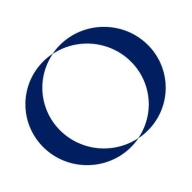

Microsoft Remote Desktop Services and Horizon 8 are competitors in the virtual desktop solutions category. Microsoft RDS seems to have the upper hand due to its ease of use and cost effectiveness.
Features: RDS integrates seamlessly with Windows, offering ease of use and stress-free central management. It provides load balancing and high availability without extra costs. On the other hand, Horizon 8 stands out with advanced virtualization, instant clone technology, unified management, and support for multiple platforms.
Room for Improvement: RDS can enhance network independence and remote access, and improve integration with non-Windows OS. Horizon 8 could benefit from simplifying cloud service integration and its licensing process, as well as tackling its initial complexity.
Ease of Deployment and Customer Service: RDS is easy to deploy, particularly in Microsoft environments, with less need for technical support but could improve its support response. Horizon 8 may require more initial support due to a steeper learning curve, yet is backed by detailed documentation.
Pricing and ROI: RDS is cost effective, often bundled with Microsoft licenses, and praised for its value through simplicity. Horizon 8 generally comes at a higher price, justified by extensive virtualization capabilities, but both solutions see mixed ROI reviews based on specific deployments.
Our support from VMware expired last December.
My impression is that most of the solutions, especially today, make sense for large corporations with 2000 seats or more.
We have limited capabilities since we are not using a multi-instance solution, just single instances.
It should be easier to create a template and duplicate users.
I rate the cost-effectiveness of GenApp of Citrix equal to our CMS; it is quite cost-effective.
The solution has data leak prevention features that ensure data is not copied from the base machine to VDI.


VMware Horizon is a virtual desktop infrastructure (VDI) solution designed to allow users to create secure and scalable virtual desktops and applications that work on any device, from any location. These virtualization capabilities help simplify and speed up application delivery and greatly reduce enterprise costs.
VMware Horizon’s centralized management console provides IT admins with comprehensive control over all of their virtual desktops and applications, making them simple to manage and secure. The solution enables using features such as identity and access management, multi-factor authentication, and encryption, to ensure ultimate data protection.
Some of key the benefits of using VMware Horizon include:
Some of the top features of VMware Horizon include:
Reviews from Real Users
VMware Horizon stands out among its competitors for a number of reasons. Several major ones are its high performance, flexibility, and powerful virtualization capabilities.
Natnael A., a consultant at IWM Network Solutions, writes, “The app virtualizing is a great feature. The system developers use it to deliver apps to targeted staff. It basically reduces the server infrastructure resource. The solution provides good functionality.”
Rob M., a systems administrator at Saint Tammany Parish Hospital, says, “The solution has provided flexibility by allowing an end user to remote in, log in, and get their VM. VDI session and have all the icons and applications they need to use and retain the same booking view regardless of location.”
Microsoft Remote Desktop Services is a highly regarded remote access tool in addition to being a top-ranked Virtual Desktop Infrastructure (VDI) solution in the marketplace today.
Microsoft Remote Desktop Services (RDS) is a suite of valuable elements of the Windows operating system (OS) that serve specific desired objectives. Microsoft RDS integrates various features that allow approved users to gain access to graphical desktops and Windows applications remotely. Approved users are able to deploy applications or even a complete desktop without having to install anything on their devices. Everything remains in the cloud. This ensures that there are never any compatibility issues and keeps the organization's original network secure at all times. Administrators are also able to ensure that data cannot be stored in any unapproved location, such as the local device, unapproved drives, or any other location.
Microsoft RDS makes it easy for business organizations to access Windows Desktops and other Windows applications remotely to ensure today’s busy enterprise organizations are able to maintain the highest levels of productivity at all times. There are two basic ways organizations can effectively utilize RDS.
Microsoft Remote Desktop Services Benefits
Microsoft Remote Desktop Services has many benefits. Some of its most valuable benefits include:
Microsoft Remote Desktop Services makes it easy for busy enterprise organizations to stay productive and remain competitive in today’s aggressive marketplace. An organization's end-users can be given access to their own specific desktops from any location, anytime, using any approved device. Additionally, users can access Microsoft applications without having an effect on their device's resource capacity or performance.
Reviews from Real Users
“What I found most valuable in Microsoft Remote Desktop Services is accessibility because the solution lets you take control of your computer remotely, and that's a good feature.” Pascal B., IT consultant at Secoptrial
“The most valuable features of Microsoft Remote Desktop Services are unification, central management, and accessibility.” Jan S. Solution Architect at a tech services company
“The most valuable features are that it is fast and cost-effective. I am not aware of a replacement currently on the market.” Ramon H. Director at Empaco
We monitor all Virtual Desktop Infrastructure (VDI) reviews to prevent fraudulent reviews and keep review quality high. We do not post reviews by company employees or direct competitors. We validate each review for authenticity via cross-reference with LinkedIn, and personal follow-up with the reviewer when necessary.